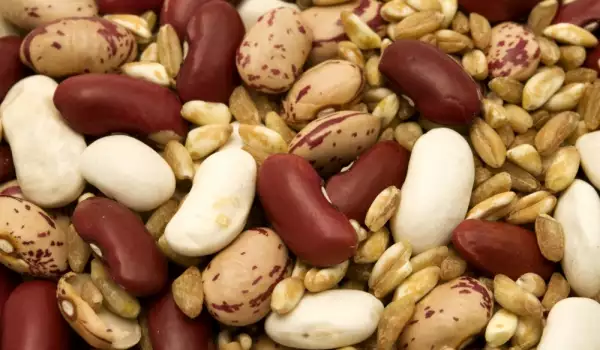Glycine is a nonessential amino acid, found in protein composition. Glycine is the smallest amino acid but is among the most substantial amino acids produced by the body.
It's used to build muscle tissue and for transforming glucose into energy. Glycine plays a role in the biosynthesis of various metabolites in the human body.
It is a component of creatine, purine core and plays a part in the synthesis of nucleic acids. It provides nitrogen for the synthesis of other amino acids.
Benefits of Glycine
Undoubtedly, the most important function of glycine is to build muscle tissue and to transform glucose into energy. It is also crucial for maintaining a healthy central nervous system and digestive system.
In the past few years it's been proven that glycine protects against certain cancers thanks to its antioxidant action.
Glycine is utilized by the body to create normal DNA and RNA strands. This amino acid helps prevent loss of muscle mass in the body by raising creatine levels.

There is a high concentration of glycine not only in the muscles but in the skin and other connective tissues. Nearly 1/3 of the collagen that maintains the flexibility of connective tissue and skin consists of glycine. Without the availability of glycine, the body wouldn't be able to restore damaged tissues and the skin would stagnate.
Glycine is an amino acid of prime significance for the healthy functioning of the digestive system. It aids the synthesis of bile acids which are used to digest fats.
It is considered a glycogen amino acid which means it helps provide the body with glucose. Glycine also helps regulate blood sugar levels.
Supplements containing glycine can be beneficial for conditions such as hypoglycemia, anemia and chronic fatigue syndrome.
Glycine is required for the normal functioning of the central nervous system. Studies show that it can inhibit neurotransmitters which cause hyperactivity and manic depression.
When necessary, glycine can be transformed into another type of neurotransmitter - serine. It can be useful in treating schizophrenia.
Some experts believe that glycine can play a very key role in maintaining prostate health. It is thought to prevent the development of tumors and melanoma. As a food supplement, glycine has a relaxing and antidepressant effect.

Sources of Glycine
Most foods rich in protein are sources of glycine - fish, meat, legumes and dairy products.
Taking Glycine
People who are in good physical condition have no need of taking additional glycine in the form of food supplements. If necessary, glycine needs to be taken under a doctor's supervision.
Deficiency of Glycine
The body itself synthesizes enough quantities of glycine, which is why the chances for developing a deficiency of it are very low.
Glycine, therefore, falls into the group of nonessential amino acids, meaning it can be synthesized in the body as well.
Dangers of Glycine
Studies of glycine's function show that it doesn't have any toxic effects. However, persons with kidney or liver diseases should not take large amounts of amino acids before consulting with a medical professional. Otherwise, undesirable complications may occur.














